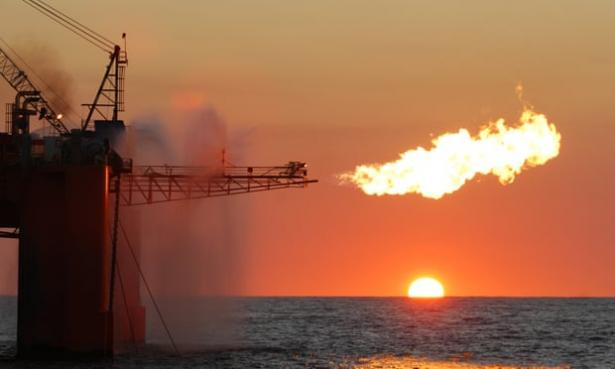I remember well the first institution to announce it was divesting from fossil fuel. It was 2012 and I was on the second week of a gruelling tour across the US trying to spark a movement. Our roadshow had been playing to packed houses down the west coast, and we’d crossed the continent to Portland, Maine. As a raucous crowd jammed the biggest theatre in town, a physicist named Stephen Mulkey took the mic. He was at the time president of the tiny Unity College in the state’s rural interior, and he announced that over the weekend its trustees had voted to sell their shares in coal, oil and gas companies. “The time is long overdue for all investors to take a hard look at the consequences of supporting an industry that persists in destructive practices,” he said.
Six years later, we have marked the 1,000th divestment in what has become by far the largest anti-corporate campaign of its kind. The latest to sell their shares – major French and Australian pension funds, and Brandeis University in Massachusetts – bring the total size of portfolios and endowments in the campaign to just under $8 trillion (£6.4tn).
The list of institutions that have cut their ties with this most destructive of industries encompasses religious institutions large and small (the World Council of Churches, the Unitarians, the Lutherans, the Islamic Society of North America, Japanese Buddhist temples, the diocese of Assisi); philanthropic foundations (even the Rockefeller family, heir to the first great oil fortune, divested its family charities); and colleges and universities from Edinburgh to Sydney to Honolulu are on board, with more joining each week. Forty big Catholic institutions have already divested; now a campaign is urging the Vatican bank itself to follow suit. Ditto with the Nobel Foundation, the world’s great art museums, and every other iconic institution that works for a better world.
Thanks to the efforts of groups such as People & Planet (and to the Guardian, which ran an inspiring campaign), half the UK’s higher education institutions are on the list. And so are harder-nosed players, from the Norwegian sovereign wealth fund (at a trillion dollars, the largest pool of investment capital on Earth) to European insurance giants such as Axa and Allianz. It has been endorsed by everyone from Leonardo DiCaprio to Barack Obama to Ban Ki-moon (and, crucially, by Desmond Tutu, who helped run the first such campaign a generation ago, when the target was apartheid).
And the momentum just keeps growing: 2018 began with New York City deciding to divest its $189bn pension funds. Soon the London mayor Sadiq Khan was on board, joining the New York mayor Bill de Blasio to persuade the other financial capitals of the planet to sell. By midsummer Ireland became the first nation to divest its public funds. And this month, a cross-party group of 200 MPs and former MPs called on the their pension fund to phase out its substantial investment in fossil fuel giants.
The deeper question, though, is whether divestment is making a dent in the fossil fuel industry. And there the answer is even clearer: this has become the deepest challenge yet to the companies that have kept us on the path to climate destruction.
Bill McKibben is a writer and co-founder of the climate campaign 350.org
In these critical times …
… The Guardian’s US editor John Mulholland urges you to show your support for independent journalism with a year-end gift to The Guardian. We are asking our US readers to help us raise $1 million dollars by the new year to report on the most important stories in 2019.
A note from John:
In normal times we might not be making this appeal. But these are not normal times. Many of the values and beliefs we hold dear at The Guardian are under threat both here in the US and around the world. Facts, science, humanity, diversity and equality are being challenged daily. As is truth. Which is why we need your help.
Powerful public figures choose lies over truths, prefer supposition over science; and select hate over humanity. The US administration is foremost among them; whether in denying climate science or hating on immigrants; giving succor to racists or targeting journalists and the media. Many of these untruths and attacks find fertile ground on social media where tech platforms seem unable to cauterise lies. As a result, fake is in danger of overriding fact.
Almost 100 years ago, in 1921, the editor of The Guardian argued that the principal role of a newspaper was accurate reporting, insisting that “facts are sacred.” We still hold that to be true. The need for a robust, independent press has never been greater, but the challenge is more intense than ever as digital disruption threatens traditional media’s business model. We pride ourselves on not having a paywall because we believe truth should not come at a price for anyone. Our journalism remains open and accessible to everyone and with your help we can keep it that way.
We want to say a huge thank you to everyone who has supported The Guardian so far. We hope to pass our goal by early January 2019. Every contribution, big or small, will help us reach it. Please make a year-end gift today to show your ongoing support for our independent journalism. Thank you.


Spread the word